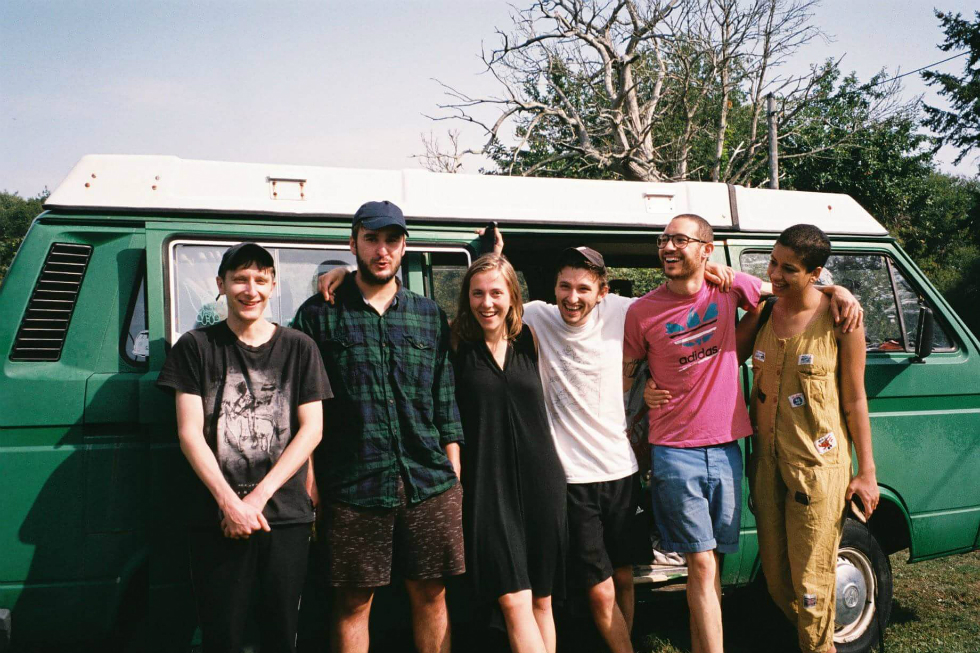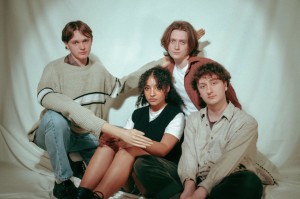Playlist: Pale Master

Welcome to the final TDN playlist of 2018, in which Mike Pinnington speaks to Pale Master’s JC about slow burn ideas coming to fruition, tactile releases and encouraging an “honest dynamic” with artists…
The Double Negative: How (and when) did the label come about, and were there any particular inspirations or things that led you to it?
JC: I started Pale Master towards the end of 2016, but I’d been toying with the idea for a good three years before that. I’d attended a talk by Jeff Travis the founder of Rough Trade and he spoke about how he worked with artists and made the distinction between asking if you can have someone’s work (for release) and asking if you can help an artist in any way. The former being a somewhat selfish act where you are already coming at a project with a bias, whereas the latter makes for a much more balanced dialogue. Asking an artist how you can help them creates an honest dynamic and frees the collaboration to move in a more natural way. I see Pale Master as a platform for collaborating with artists.
The first release we did was EP64. I’d shared a bill with them at a show in Bristol, (this was a month or two before Pale Master was set up) and thought what they were doing was really engaging. We carried on talking during the weeks that followed and decided to work on a release for a new label I was starting. We set up a show for them in Liverpool – which subsequently became the label’s launch show – and recorded their performance, which we put out as one of our first releases.
Listening back to that recording now, it’s clear how much energy was in that room; it was a very small space at the back of a vintage clothes shop on Duke Street. The crowd where hanging on the trio’s every move and they played flat out for over 40 minutes, feeding off that energy and throwing it back out into the space. I am forever indebted to EP64 and Dan from UKAEA – another of our initial releases – for entrusting me with their work and allowing me to get the label off the ground.
How would you characterise the sound of the label?
I’m drawn towards artists whose work and the process of creating that work I find engaging. One of the early concepts of the label was to explore the space between digital realms and the real world, and how you could work across both of these two spaces whilst giving them an equal economy. There’s a huge discourse around physical media (decline in CD sales, the re-emergence of vinyl and the tape scene) versus virtual spaces, (streaming platforms, downloading, social media). I wanted to explore what it meant to make the space in-between this discourse tangible and what the currency of this low temperature cybernetic space looked/sounded like. We’re still working on the answer to this question.
What formats do you release on?
Currently our physical releases have mainly been cassettes. There’s low economic overheads in working with cassette tape, and this frees us to be able to take risks when releasing work. Politically there’s the Marxist idea of seizing the means of production which is also at play. The cassette tape marks a point at which consumers could affordably record, copy and distribute music, from their own homes using a domestic hi-fi system. This movement had such a dramatic change in regards to how music was shared that at one point there was a reactionary ‘home taping is killing music’ movement by the music and distribution industry. And this still plays out, from the closing down of Napster in 2002 and pressure being put on internet service providers to block peer-to-peer sharing sites such as Pirate Bay.
I became interested in how information is not a conserved quantity. N. Katherine Hayles points out in her book, How We Became Posthuman (1999), that a significant difference between information and durable goods is replicability. Cassettes are a vessel in which to physically share information and a way of making this information tangible and tactile. The same can be said about USB and CDR. You can duplicate and manipulate them fairly easily at home and are free to do so. So it becomes less about possession and more about access. All our releases, some of them for free, are available through the Pale Master bandcamp page. The same is true of the live shows we programme, there is no fixed door price and people can donate whatever they feel they can afford or nothing at all.
Tell us about the name of the label.
The name Pale Master is a reference to David Foster Wallace. When people ask me why I moved to Liverpool I used to answer that it was about job opportunities. However, the real reason is because I was suffering from depression and crippling social anxiety after going through some not great stuff where I used to live. After four years of battling against it I decided the only thing to do was quit my job and leave the town I’d grown up in. Shortly after arriving in Liverpool a friend of mine gave me a copy of D.T. Max’s Every Love Story Is A Ghost Story, a biography of Foster Wallace. For the first time I read a description of depression that resonated with me in a way that was relatable to my own experience. Foster Wallace would spend weeks binge watching television paralysed by lack of motivation and self-confidence, whilst simultaneously totally anxious about everything. It was a lightbulb moment and made me understand so much more about what I was going through at the time.
The smiley face symbol has a double meaning. One is a reference to Infinite Jest, Wallace’s novel in which the iconography of this face represents the pull of addiction to anything in life that gives us pleasure: drugs, entertainment. The smiley face is also iconic of the rave and free party movement of the 90s. This movement could be seen as a major turning point in which we created a bridge between the real and the virtual; where we let ourselves become immersed with the concept of giving agency to music being generated by computers to such an extent that it created its own counter culture which irrevocably spread out into the mainstream.
You do club nights too?
I thought by starting a label I could remain passive whilst still being part of a music scene. I’d been touring and playing live shows for a number of years before I moved to Liverpool and so I was looking for something that allowed me to stay in one place, but also allow me to stay connected to the network I had built up. But as well as working on projects, artists also want to play shows and club nights and tour. So, I started to programme more shows and club nights and tours. I am forever grateful to my good friend George Maund and the Cartier 4 Everyone family for collaborating with me on some of those club nights, especially the Home of the Brave series. We are due another one of them soon. For a while it seemed relentless. There would be at least two or three events a month as well as the work we were releasing through the label. Towards the end of 2017 I found it was having an effect on my mental health. A constant grip of anxiety I found myself in during the lead up to a show. Will people turn up? Will the artist enjoy themselves? Will we make enough money to pay the artist properly?
In 2018 I took the active decision to move away from programming club nights and instead direct my energy into the touring, which gives me the opportunity to travel round Europe and make connections across that vast network of artists and friends. Also I needed to give myself some time to study and pursue other interests outside of the label, which back then I just wasn’t doing. Saying this, I still of course fully embrace the experience of hosting live events and creating spaces for artists and audiences to explore new music.
Anything exciting to tell us about, by way of forthcoming releases, or anything else?
Our first release of 2019 will be the debut e.p. by M T Hall in which she explores the authenticity of a voice when given to a machine. On the b-side we have remixes by Kleft, Kepla and Dialect. We also have our first publication out sometime next year. It’s currently going under the working title of KERF and will feature contributions centred on the themes of the label from writers and artists. We are currently programming our first tour of 2019 with Trashboo and JC Leisure. In January Raft of Trash will head over to Leipzig to play Parallel Spaces Festival. Overall there’s going to be a concentration of focus in regards to Pale Master’s output. Year one was all about building up momentum, year two was about fighting against that momentum. Year three is our year of balance.
Mike Pinnington
Pale Master will donate all proceeds of this mix to The Whitechapel Centre in Liverpool, supporting those sleeping rough, living in hostels or struggling to manage their accommodation.
Image: Left to right: JC, Joe Nerssessian, Vida Vojić, Joe Summers, Alex Ives and Lucie Rox





